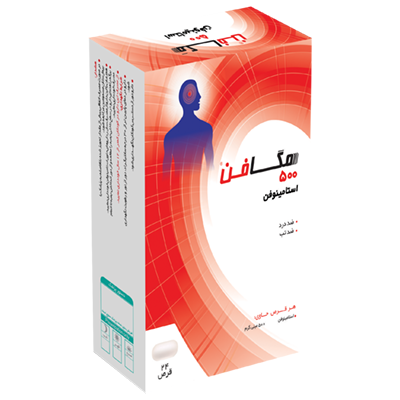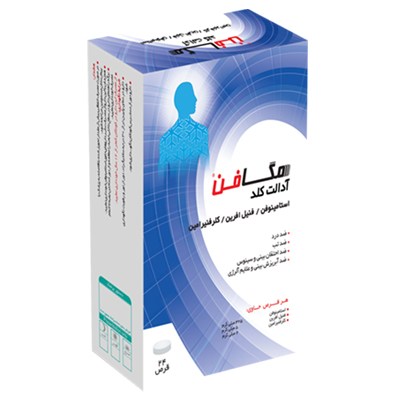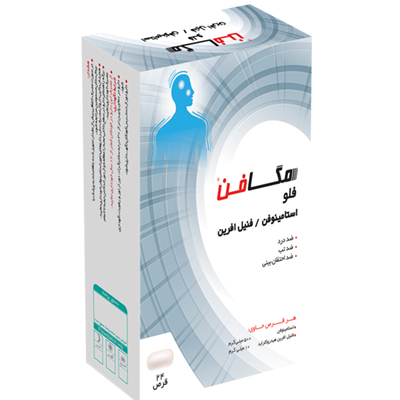In the darkness of the skin, where itching, burning, and bloody cracks rob the patient of peace, psoriasis enters the scene like an unwanted guest. A chronic, autoimmune, and complex disease that casts a heavy shadow not only on the body, but also on the human psyche. It is as if the skin of the body, with its rough and rough layers, has uttered a silent cry from the inside out. What may initially appear as only a slight redness or a small spot, gradually turns into a widespread, resistant, and exhausting problem.
If you or your loved ones have struggled with this disease, you are undoubtedly familiar with the bitter taste of ineffective treatments, temporary topical medications, and heavy stares from those around you. Desperation to find a definitive cure for psoriasis, fatigue from frequent phototherapy sessions, and concern about the side effects of chemical medications have occupied the minds of many. Even a simple question like “Is there a definitive cure for psoriasis?” has become a mystery in the medical world.
Every day, thousands of people around the world are looking for an answer to the question: What is the treatment for psoriasis? Is there hope? Or will this disease continue to be a constant guest in our lives?
We live in an era of information explosion and amazing scientific advances. Modern medicine, with a deeper understanding of the genetic, immune, and environmental origins of diseases, no longer bows to psoriasis. New doors have opened to new treatments for psoriasis, from stem cell therapy to advanced biological drugs, which offer hope not only for symptom relief but also for sustainable control of the disease.
Alongside these advances, a new perspective on personalized medicine is emerging, where treatment is not simply a generic drug, but a specific program tailored to each individual's genetics, lifestyle, and disease severity. In such a new horizon, concepts such as the best psoriasis treatment are no longer just advertising slogans, but rather achievable goals on the path to scientific and intelligent treatment.
An in-depth look at the different types of psoriasis treatment medications; from relief to transformation.
When faced with this chronic disease, the first reaction of many patients is a simple question: Is there a cure? And if so, which one will get them there? The answer lies in a thorough understanding of the types of psoriasis treatments available, ranging from topical and topical treatments to systemic interventions. Injectable Ampoules for Psoriasis Biologics and the most advanced cell regeneration technologies are expanding.
From common methods such as the use of corticosteroids, therapeutic moisturizers, and light therapy to more complex treatments such as systemic drugs (methotrexate, cyclosporine), biologics that target inflammatory pathways, and one of the most promising areas, stem cell therapy for psoriasis, all fit into a therapeutic framework. A framework whose full understanding saves the patient from confusion and guides him or her on a scientific, structured, and effective path.
Various methods are used to treat psoriasis, including drug therapy, light therapy, biologic drugs, as well as home and traditional methods. Home treatment for psoriasis It can help reduce symptoms and complement medical treatments.
Revisiting the new horizons of definitive treatment of psoriasis with cream
Tired of heavy systemic treatments and their side effects, patients are looking for a safe, local, and reliable option; an answer that is often presented in a simple and accessible form: treating psoriasis with cream. But does this method really work? Can topical creams help to calm inflammation and restore smooth, healthy skin? And most importantly, will this path lead to a definitive cure for psoriasis or is it just a temporary relief?
Creams, with today's advanced formulations, are no longer just a simple moisturizer. They carry active anti-inflammatory compounds, cell growth regulators, local immunosuppressants, and sometimes even biological agents that can penetrate deep into the skin and directly affect the source of inflammation.
However, many patients express dissatisfaction with the effectiveness of this method. Why? The answer lies in several dimensions. First, the incorrect selection of the cream according to the type and severity of the disease; second, ignorance of the correct way to use it, and third, exaggerated expectations of an immediate and miraculous effect. The important point is that treating psoriasis with cream, if chosen and used correctly, can play a vital role in controlling symptoms and preventing exacerbation of the disease.
Today, topical creams containing corticosteroids, calcipotriol, coal tar, salicylic acid, tacrolimus, and other biologic agents are recognized as effective options for the control and treatment of psoriasis. These compounds are prescribed depending on the form of the disease (plaque, inverse, guttate, or nail), the location of the involvement, and the patient's general condition, and in many cases, they provide a significant reduction in inflammation, redness, itching, and scaling.
- Mometasone furoate cream Megacort topical cream (Mometasone Furoate - Megacort)
- Betamethasone Dipropionate Cream
- Clobetasol Propionate Cream
- Hydrocortisone cream
- Tacrolimus cream
- Calcipotriol cream
- Pimecrolimus cream
- Coal Tar Ointment
- Salicylic Acid Cream
- Fluocinolone Acetonide Cream
- Combination cream containing calcipotriol plus betamethasone (Calcipotriol + Betamethasone)
We will elaborate on Article on treating psoriasis with various creams We have carefully examined each cream, its benefits, possible side effects, how to use it correctly, and key points in choosing the best option for treating psoriasis.
Treating psoriasis by understanding 10 key ingredients in topical ointments
An old question remains unanswered in the minds of patients: Is there a cure for psoriasis? And if there is, why are so many still unable to control it? The answer is neither simple nor straightforward. But there are solutions. And one of the most reliable, oldest, and yet most modern options is the treatment of psoriasis with ointment. It is a tangible and effective starting point. Not only is it economically viable, but because it acts directly on the affected area, it can provide patients with rapid and targeted relief. But are all ointments the same?
Despite their simple appearance, ointments can contain the most complex pharmaceutical formulas. From potent corticosteroids and nonsteroidal anti-inflammatories to vitamin D3 derivatives and local immune system inhibitors. Each is prescribed to treat psoriasis, with varying degrees of severity of symptoms and location of the disease. But the problem begins when patients, without knowledge or advice, resort to arbitrarily or continuously using these ointments. The result? The skin becomes resistant to treatment, the natural defenses are damaged, and the disease returns, more chronic and stubborn than before.
We will briefly discuss some of the following: The best psoriasis treatment with ointment We have mentioned them and discussed them in more detail in another article, which is worth reading.
- Ointment containing clobetasol propionate: one of the strongest topical corticosteroids, suitable for resistant psoriasis.
- Ointment containing betamethasone dipropionate: reduces inflammation, itching, and redness of the skin.
- Ointment containing calcipotriol: a vitamin D3 derivative that inhibits the abnormal proliferation of skin cells.
- Ointment containing calcipotriol + betamethasone: a synergistic combination for better effect in reducing inflammation and scaling.
- Ointment containing tacrolimus: a topical immunosuppressant, suitable for sensitive areas such as the face and body folds.
- Pimecrolimus ointment: Similar to tacrolimus, but less potent and suitable for mild to moderate cases.
- Ointment containing coal tar: reduces itching, inflammation, and scaling, suitable for thick skin.
- Ointment containing mometasone furoate: a potent corticosteroid with effective anti-inflammatory and anti-itch properties, such as Megacort topical ointment.
- Salicylic acid ointment: Exfoliates and reduces plaque thickness; often used in combination with steroids.
- Ointment containing fluocinolone acetonide: a medium-strength corticosteroid, effective in reducing chronic inflammation.
These compounds for the treatment of psoriasis should be prescribed and used under the supervision of a dermatologist to prevent long-term side effects and drug resistance.
Treating Psoriasis: Breaking Through the Layers of Inflammation with Stem Cells
One of these new paths is the use of innovative and biological technologies, especially stem cell therapy for psoriasis; a method that, unlike traditional methods, aims to correct the disorder at the cellular and immune levels. Stem cell therapy for psoriasis goes a step beyond symptom management. In this method, stem cells act as regenerative and immune-modulating agents. They can inhibit the inflammatory process, control the proliferation of keratinocyte cells, and even help improve the structure of damaged skin tissue. In other words, this method goes to the source of the flare-up, rather than temporarily extinguishing the fire of the disease.
But like any emerging treatment, this method also comes with challenges, including high costs, limited access in some countries, and the need for specialized infrastructure in treatment centers. However, initial research results and clinical experiences promise the beginning of a new era in psoriasis treatment. Below, we will mention some of the salient and notable features of stem cell therapy for psoriasis:
- Targeting the root cause of immune disorders
- Sustained reduction of chronic inflammation
- Repair of damaged skin tissues
- Improving quality of life and reducing the psychological burden of the disease
- Reducing the need for long-term use of steroid medications
- Reducing the likelihood of symptoms returning after a course of treatment
- Control of abnormal proliferation of skin cells (keratinocytes)
- Non-invasive method compared to some systemic treatments
- Alignment with integrative therapies and supportive skin care
- Potential for use in different types of psoriasis (plaque, inverse, erythrodermic, etc.)
10 Treating Psoriasis Systemically with Oral Medications: An Internal Battle for Skin Relief
This disease is not limited to the surface of the skin. What appears as painful and itchy lesions is actually a reflection of cellular disorders in the inner layers of the body. Treatment of psoriasis, especially in moderate to severe stages, no longer responds well to topical ointments and creams. At this stage, treatment must also begin from the inside; that is, treating psoriasis systemically with oral medications. Below are some types of systemic medications:
- Methotrexate is a DNA synthesis inhibitor that reduces overactivity of immune cells.
- Cyclosporine is an immunosuppressive drug that limits the production of inflammatory cytokines.
- Apremilast is a PDE4 enzyme inhibitor that controls inflammation by modulating cellular signaling.
- Acitretin, from the retinoid family, is effective in normalizing the skin cell regeneration cycle.
- Tofacitinib is a JAK inhibitor that interferes with immune cell signaling pathways.
- Dimethoxyfuran (Dimethyl Fumarate), with its anti-inflammatory and antioxidant properties, plays a role in reducing oxidative stress for the treatment of psoriasis.
- Hydroxycarbamide is a chemotherapy drug used in certain cases to modulate immune responses.
- Oral Tretinoin is a systemic form of vitamin A that is effective in improving skin thickness and scaling.
- Mycophenolate Mofetil is an immunosuppressive drug that reduces the proliferation of T and B cells.
- Azathioprine is a drug with a broad effect in reducing the autoimmune response, especially in resistant psoriasis.
These compounds control the disease process through different mechanisms, including inhibiting cell proliferation, regulating inflammatory pathways, and modulating T-cell function. However, oral psoriasis treatment, as promising as it is, requires close medical supervision. These drugs may have numerous side effects on the liver, kidneys, or blood pressure, and their use must be accompanied by regular laboratory monitoring. However, if carefully managed and based on scientific principles, they can be a turning point in the control and even long-term suppression of the disease.
Clobetasol: At the forefront of psoriasis treatment
One of the most well-known and widely used topical medications for the treatment of psoriasis is clobetasol propionate; a substance that has a special place in many prescriptions for the treatment of psoriasis. Clobetasol is a very potent corticosteroid for the rapid treatment of psoriasis that significantly reduces redness, inflammation, swelling, and itching by inhibiting inflammatory processes on the skin surface. This drug, by rapidly penetrating the deep layers of the epidermis, is able to reduce the production of cytokines and other inflammatory mediators at the level of immune cells.
Unlike many weaker corticosteroids that lose their effectiveness in moderate or severe cases, Clobetasol in the treatment of psoriasis Due to its high potency, it works well for resistant and chronic types of this condition. The speed of action of this drug is impressive; many patients experience reduced inflammation and improved skin appearance after just a few days of use.
This drug also has the potential to be used in areas such as palmoplantar psoriasis, scalp psoriasis, and inverse psoriasis, areas that are more difficult to access, absorb, or treat.





One Response
Very useful